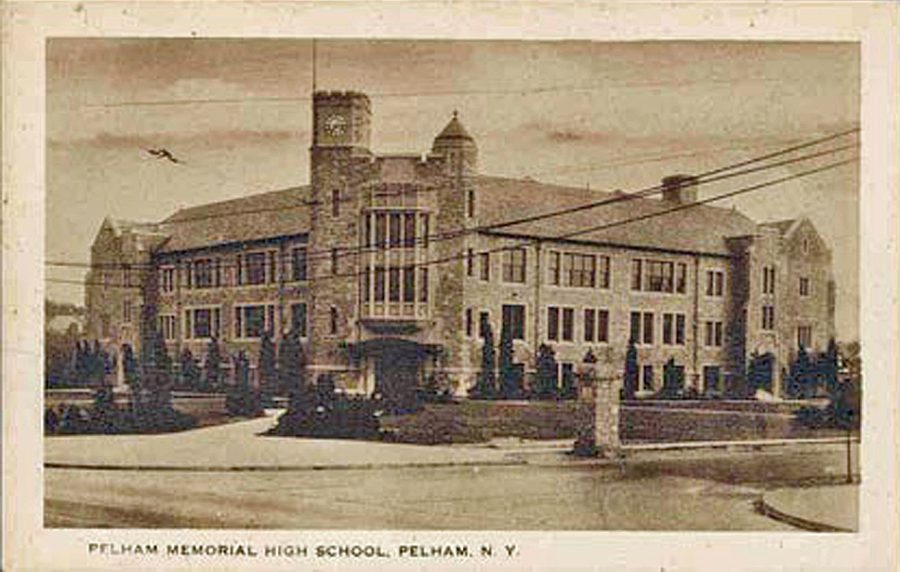Remembering September 11th in Pelham
January 10, 2023
Image credit: historicpelham.blog
Every September when schools discuss September 11, 2001, the conversation generally drifts to the sequence of events that occurred in New York City. Although it holds importance, the story of the scene in Pelham generally goes unheard. The effects on PMHS are mostly unknown to residents and students who were not here at the time. The tension in Pelham, and thereby PMHS, was unclear mostly due to the absence of necessary communication, causing the school and students to interpret any details they could gather with notions of uncertainty and fear. With the anxiety of another potential strike and concerns for family members in the city running high, the school was left in the dark and forced to carry out an uncertain course of action throughout the day as the result of an unforeseeable tragedy.
Differing greatly from the modern utilities at PMHS, a lack of technology was a major cause of the confusion not only in the school but all over the country. The high school, for example, lacked an announcement system and thus the administration had to resort to crafting hand-written letters filled with only confirmed details, having the hall monitors deliver one to each class. A sole television in Mr. Rovida’s audio visual room also acted as the only source of live information in the entire building. The principal at the time, Mr. Shilleto, and vice principal, Mr. Leprine were the first to gain access as other teachers trickled in during their own free periods, all subsequently shocked by what they saw. Current staff members who were in the building at the time included Mr. Moskowitz, Mr. Accocella, Mr. Codella, Mr. Leprine, and Mrs. Thompson.
“Fourth period I got my first break and I went down to Mr. Rovida’s where a TV was on. A lot of teachers were gathered around the TV, weeping and muttering. A deep sense of rage started to well up inside of me. Cell phones were fairly new, and I called my wife immediately”, Moskowitz said.
In 2001 most students and staff only had flip phones, meaning the information that they could gather could only stem from calls they made to those who were on site.
Given these setbacks, the school resorted to doing whatever they could in order to make the environment in the building safer for students and teachers. Psychologists and guidance counselors in school were immediately alerted and offered to any student who wanted support in order to combat the initial wave of panic. The superintendent, Dr. Wilson believed that returning to a sense of normalcy would be the best course of action, yet teachers could ultimately choose whether they wanted to continue teaching, or simply talk about what was happening in the city. Students who wanted to could leave school and go home, but otherwise, the administration decided to default to keeping the students in school until regular dismissal time with the thoughts of giving parents the chance to return home from work. Additionally, having all students in a place where adults could watch over them appeared to be the most efficient method to take.
As time passed and the initial shock died down, the figures and numbers from the twin towers took their effect on PMHS and Pelham as a whole. A cloud of what could only be described as sorrow and shock hung over the heads of the students and staff.
”It was very somber. There were students who had lost their parents or family members. There was grieving. We held an emergency faculty meeting before school for staff the day after and we decided that the mantra was just to be there for the students,” Mr. Leprine recalled.
Ultimately, through such compassion and unification, students and staff alike were able to overcome and thrive throughout the hardships they faced by attempting to look through a positive lens.
”It was a tragic time, but it was also a time where people came together and supported each other, and I remember the principal and I spent a lot of time with the students, and one of the things we talked about quite a bit about were the heroes that emerged and the first responders, that were trying to save lives,” Leprine said. ”In tragedy, there is always something to take out of it – goodness and support.”




